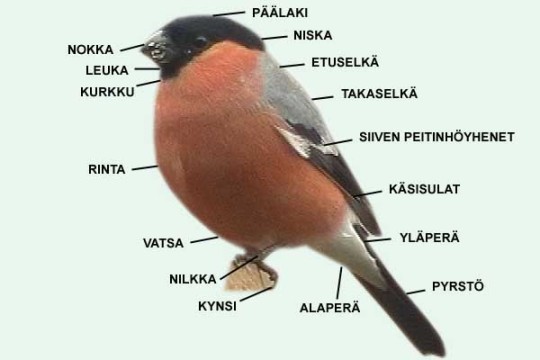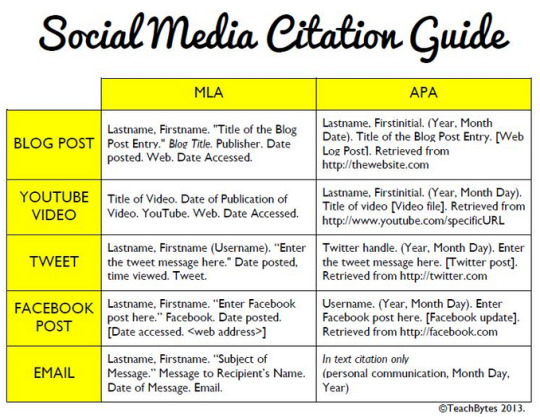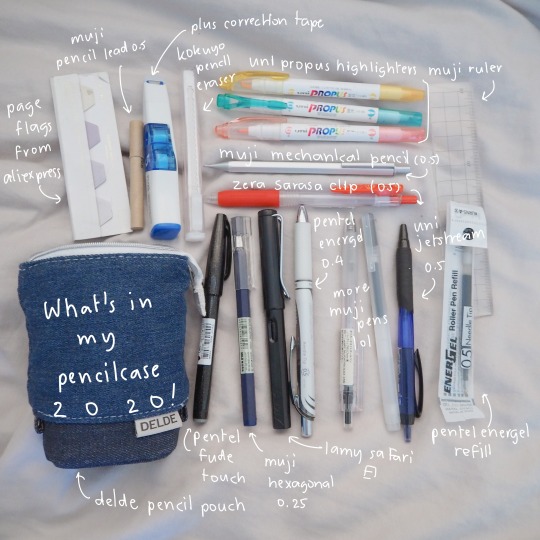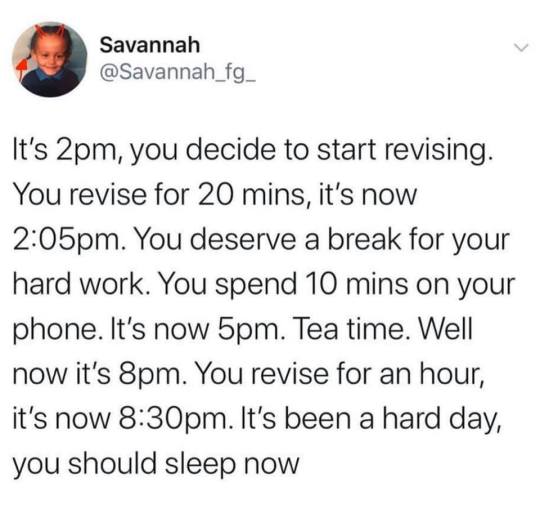Text
Top ten Danish sayings according to me
My ten favourite Danish sayings/turns of phrase (in no particular order), just because I love language. I say all of these regularly. Enjoy!
goddag mand, økseskaft – hello man, axe handle
This one is used when someone answers a question you asked in a nonsensical way or just in general when someone has said something foolish or nonsensical. you can read about the origin in Danish here.
det kan ske, det kniver med gaflerne – it may spoon it knives with the forks / it happens that the forks are in short supply
Not used in any specific situation other than when someone says det kan ske 'it happens', because ske 'spoon' and ske 'happen' just so happen to be homonyms. Additionally kniv 'knife' and knibe 'be in short supply' are almost homophonous, especially if kniv was a verb.
fra folk og fulde børn skal man høre sandheden – from people and drunk children you will hear the truth
This is not actually the saying, it's supposed to be børn og fulde folk, but it's more fun like this. Originally, this refers to the fact that neither children, nor the drunk tend to think too hard before speaking, thus they tend to tell the truth.
det haster ikke mere end det jager – it's no more urgent than urgency
Excuse my creative liberties here, as both haste and jage mean 'be urgent'. It is more or less synonymous with "take it easy, no rush" – a sort of Danish hakuna matata.
To me, as someone from Western Jutland, jager should always be pronounced jawer ['ja.wʌ] in this saying.
stå med håret i postkassen – to have gotten one's hair stuck inside the mailbox
A metaphor for when you are in some sort of trouble or problematic situation where you feel like you have no power to change your unlucky situation. Often used when you are disappointed as a result of being cheated somehow.
det kan noget – it does something
My best approximation of an English version is "it's got a certain je ne sais quois", because that's literally what it means. It does something for you, specifically, but you're not entirely sure what exactly it is that it does – but it works!
man kan æggehvide, hvad man æggeskal – one egg whites what one eggshells | one cannot know what one should not do
Another pun, I am sorry for being your literal dad, I guess. Basically æggehvide 'egg white' sounds like ikke vide 'not know' and æggeskal 'eggshell' sounds like ikke skal 'should not'
ikke nå nogen/noget til sokkeholderne – not being able to reach someone/something's garters
When someone/-thing is not nearly as good as someone/-thing else. You know, it barely reaches above their knee!
hvor der handles, der spildes – where stuff gets done, stuff gets lost
Exactly what it says on the tin. Its English cousin is "you can't make an omelet without breaking a few eggs".
fanden og hans pumpestok – the Devil and his pump stick
Yes, this is as vulgar as it sounds. This one is used last in lists of things that are excessive, e.g, vi skulle støvsuge, slå græs, fjerne spindelvæv, dampe gulvtæppet og Fanden og hans pumpestok 'we had to vacuum, mow the lawn, remove cobwebs, steam the carpet and God knows what else'.
Honourable mention for this one that I learnt while looking stuff up in the dictionary:

[ID: A screenshot from Danish online dictionary ordnet.dk of the entry for the saying 'anbringe bagdelen i klaskehøjde'. It explains the saying and additionally recommends the entries for smæk and øretævernes holdeplads. End ID]
Translation:
to place one's backside (ass, bum) in smacking height.
TRANSFERRED MEANING cause oneself to end up in a situation where one might very easily be exposed to criticism and negative reactions from one's surroundings – e.g., by speaking openly about a certain case USE informal
SEE ALSO spanking | the whoopings' parking space
107 notes
·
View notes
Text
Suomen linnut / Finnish Birds

Siipi - wing
Nokka - beak
Kynsi - claw
Höyhen - feather
Pyrstö - tail
Rinta - breast
Pöllö - owl
Haukka - hawk
Kotka - eagle
Tikka - woodpecker
Kuukkeli - Siberian jay
Ankka - duck
Kana - chicken
Rantakana - rail
Kurki - crane
Joutsen - swan
Laulujoutsen - whooper swan
Varpunen - house sparrow
Punarinta - European robin
Tiainen - tit
Hömötiainen - willow tit
Sinitiainen - blue tit
Talitiainen - great tit
Onnenlintu - lucky bird
Ääni - voice/call
Äännellä - to call or sing
Lentää - to fly
Orsi - a perch
Istua orrella - to sit on a perch
139 notes
·
View notes
Text
Finnish Grammar Gothic
- There are 14, 15 or 16 cases, depending on who you ask. One might be accusative. Accusative may not exist at all. It depends on who you ask. Who do you ask? You don’t know who to ask. You can ask nobody. The accusative case stares at you, accusingly.
- Imperative exists in three persons. Which three persons, you ask. Plural, they reply. Don’t forget the plural imperative. You stare at your textbook. Your textbook stares back at you. The negative active 2. person imperative has ceased to make any sense. Has it ever made sense?
- You’re learning the difference between the short and the long vowels. The short vowels are short. The long ones are twice as long as the short ones. But really, they say, they’re thrice as long as that. Even longer than that. Ä, you say. Ää. Äää. Äääääääääää-
It never stops.
- The verb types are easy, they say. There are only six verb types. Six. Your text book lists only five. What is the sixth verb type? It’s in the next book, your professor says. There is no next book. What is the sixth verb type?
- The vowels come in groups. You don’t know why they’ve come or why they’re in groups. You learn their harmony all the same. You shed a tear when you’ve mastered it. But have you mastered it? The vowel harmony lulls you into a false sense of security. The vowels will strike when you least expect it.
- Consonant gradation.
- There is no accusative, your professor screams at you. It’s genitive! Or partitive! Or plural nominative, but only in the personal pronouns! The accusative does not exist! He is red in the face. Why does the accusative not exist? Do grammatical objects not exist in this language? you ask. (You shouldn’t have asked.) You are met with blank stares.
- In the future you would like to speak Finnish fluently. You make the mistake of saying this aloud. The ground opens beneath your feet and a terrible voice booms: THERE IS NO FUTURE! Silly you, you think. Of course there isn’t. You dutifully note down the three different past tenses.
- Sentence replacements replace sentences, your professor tells you. He does not tell you what the sentences are replaced with. You stare at the list of sentence replacements. There are nine items on the list. One is a quantum sentence replacement. You dare not ask.
- New words are easy to create, they say. So easy. What could possibly go wrong? You decide to create a new word. You have created an abomination.
- You’re conjugating -i nouns. There’s another group of -i nouns conjugated differently. These are very old words, your professor says. There’s another group of -i nouns. These are very old words, she says. Even older words. There’s another group of -i nouns. These are very old words, she says. They are ancient words. Blood and devil words, the past whispers in your ear.
- Some of those 14 or 15 or 16 cases are fossilised, so don’t worry about them, your professor says. Don’t worry at all. But you worry. You must worry.
- You watch a video on facebook. The Most Important Word In Finnish, it’s called. It becomes clear that it is possible to carry entire conversations using only this one word. Your smile stiffens on your face. There is only one word. There has only ever been one word.
2K notes
·
View notes
Video
oh my god two words in that just UNIVERSAL LANGUAGE
1M notes
·
View notes
Text
Tips to learn a new language
The 75 most common words make up 40% of occurrences
The 200 most common words make up 50% of occurrences
The 524 most common words make up 60% of occurrences
The 1257 most common words make up 70% of occurrences
The 2925 most common words make up 80% of occurrences
The 7444 most common words make up 90% of occurrences
The 13374 most common words make up 95% of occurrences
The 25508 most common words make up 99% of occurrences
(Source: 5 Steps to Speak a New Language by Hung Quang Pham)
This article has an excellent summary on how to rapidly learn a new language within 90 days.
We can begin with studying the first 600 words. Of course chucking is an effective way to memorize words readily. Here’s a list to translate into the language you desire to learn that Derek Roger suggested! :)
EXPRESSIONS OF POLITENESS (about 50 expressions)
‘Yes’ and ‘no’: yes, no, absolutely, no way, exactly.
Question words: when? where? how? how much? how many? why? what? who? which? whose?
Apologizing: excuse me, sorry to interrupt, well now, I’m afraid so, I’m afraid not.
Meeting and parting: good morning, good afternoon, good evening, hello, goodbye, cheers, see you later, pleased to meet you, nice to have met.
Interjections: please, thank you, don’t mention it, sorry, it’ll be done, I agree, congratulations, thank heavens, nonsense.
NOUNS (about 120 words)
Time: morning, afternoon, evening, night; Sunday, Monday, Tuesday, Wednesday, Thursday, Friday, Saturday; spring, summer, autumn, winter; time, occasion, minute, half-hour, hour, day, week, month, year.
People: family, relative, mother, father, son, daughter, sister, brother, husband, wife; colleague, friend, boyfriend, girlfriend; people, person, human being, man, woman, lady, gentleman, boy, girl, child.
Objects: address, bag, book, car, clothes, key, letter (=to post), light (=lamp), money, name, newspaper, pen, pencil, picture, suitcase, thing, ticket.
Places: place, world, country, town, street, road, school, shop, house, apartment, room, ground; Britain, name of the foreign country, British town-names, foreign town-names.
Abstract: accident, beginning, change, color, damage, fun, half, help, joke, journey, language, English, name of the foreign language, letter (of alphabet), life, love, mistake, news, page, pain, part, question, reason, sort, surprise, way (=method), weather, work.
Other: hand, foot, head, eye, mouth, voice; the left, the right; the top, the bottom, the side; air, water, sun, bread, food, paper, noise.
PREPOSITIONS (about 40 words)
General: of, to, at, for, from, in, on.
Logical: about, according-to, except, like, against, with, without, by, despite, instead of.
Space: into, out of, outside, towards, away from, behind, in front of, beside, next to, between, above, on top of, below, under, underneath, near to, a long way from, through.
Time: after, ago, before, during, since, until.
DETERMINERS (about 80 words)
Articles and numbers: a, the; nos. 0–20; nos. 30–100; nos. 200–1000; last, next, 1st–12th.
Demonstrative: this, that.
Possessive: my, your, his, her, its, our, their.
Quantifiers: all, some, no, any, many, much, more, less, a few, several, whole, a little, a lot of.
Comparators: both, neither, each, every, other, another, same, different, such.
ADJECTIVES (about 80 words)
Color: black, blue, green, red, white, yellow.
Evaluative: bad, good, terrible; important, urgent, necessary; possible, impossible; right, wrong, true.
General: big, little, small, heavy; high, low; hot, cold, warm; easy, difficult; cheap, expensive; clean, dirty; beautiful, funny (=comical), funny (=odd), usual, common (=shared), nice, pretty, wonderful; boring, interesting, dangerous, safe; short, tall, long; new, old; calm, clear, dry; fast, slow; finished, free, full, light (=not dark), open, quiet, ready, strong.
Personal: afraid, alone, angry, certain, cheerful, dead, famous, glad, happy, ill, kind, married, pleased, sorry, stupid, surprised, tired, well, worried, young.
VERBS (about 100 words)
arrive, ask, be, be able to, become, begin, believe, borrow, bring, buy, can, change, check, collect, come, continue, cry, do, drop, eat, fall, feel, find, finish, forget, give, going to, have, have to, hear, help, hold, hope, hurt (oneself), hurt (someone else), keep, know, laugh, learn, leave, lend, let (=allow), lie down, like, listen, live (=be alive), live (=reside), look (at), look for, lose, love, make, may (=permission), may (=possibility), mean, meet, must, need, obtain, open, ought to, pay, play, put, read, remember, say, see, sell, send, should, show, shut, sing, sleep, speak, stand, stay, stop, suggest, take, talk, teach, think, travel, try, understand, use, used to, wait for, walk, want, watch, will, work (=operate), work (=toil), worry, would, write.
PRONOUNS (about 40 words)
Personal: I, you, he, she, it, we, they, one; myself, yourself, himself, herself, itself, ourselves, yourselves, themselves.
Possessive: mine, yours, his, hers, its, ours, theirs.
Demonstrative: this, that.
Universal: everyone, everybody, everything, each, both, all, one, another.
Indefinite: someone, somebody, something, some, a few, a little, more, less; anyone, anybody, anything, any, either, much, many.
Negative: no-one, nobody, nothing, none, neither.
ADVERBS (about 60 words)
Place: here, there, above, over, below, in front, behind, nearby, a long way away, inside, outside, to the right, to the left, somewhere, anywhere, everywhere, nowhere, home, upstairs, downstairs.
Time: now, soon, immediately, quickly, finally, again, once, for a long time, today, generally, sometimes, always, often, before, after, early, late, never, not yet, still, already, then (=at that time), then (=next), yesterday, tomorrow, tonight.
Quantifiers: a little, about (=approximately), almost, at least, completely, very, enough, exactly, just, not, too much, more, less.
Manner: also, especially, gradually, of course, only, otherwise, perhaps, probably, quite, so, then (=therefore), too (=also), unfortunately, very much, well.
CONJUNCTIONS (about 30 words)
Coordinating: and, but, or; as, than, like.
Time & Place: when, while, before, after, since (=time), until; where.
Manner & Logic: how, why, because, since (=because), although, if; what, who, whom, whose, which, that.
240K notes
·
View notes
Text
How to teach yourself linguistics online for free
Wish you were enrolled in an intro linguistics class this semester? Starting a linguistics major and looking for extra help? Trying to figure out whether you should study linguistics and what comes after? Whether you’re just trying to grasp the basics of linguistics or you’re trying to construct a full online linguistics course, here’s a comprehensive list of free linguistics websites, podcasts, videos, blogs, and other resources from around the internet:
Linguistics Podcasts
Specific episodes:
The International Phonetic Alphabet and vowels
Constituency
Gricean Maxims and presuppositions
Kids These Days aren’t ruining language
Learning languages linguistically
Phonemes and palatalization
Prepositions, determiners, verbs
Morphemes and the wug test
Why do we gesture when we talk?
Syllables
Podcasts in general:
Lingthusiasm
The History of English Podcast
Talk the Talk
Lexicon Valley
The World in Words
A Way With Words
Vocal Fries
Linguistics Videos
Modular topics:
NativLang (cartoons)
The Ling Space
Tom Scott’s Language Files
Arika Okrent (whiteboard videos)
Structured video series like an online course:
Introduction to Linguistics (TrevTutor)
Another intro linguistics series (DS Bigham)
Phonology (TrevTutor)
Mathematical linguistics (TrevTutor)
Syntax (TrevTutor)
Another syntax series following the chapter structure of a free online syntax textbook (Caroline Heycock)
The Virtual Linguistics Campus at Marburg University
“Miracles of Human Language” (on Coursera from Leiden University)
Blog posts
General
How much do I need to know before taking intro linguistics? (Spoiler: not much)
28 tips for doing better in your intro linguistics course
How to find a topic for your linguistics essay or research paper
For typesetting linguistics symbols: What is LaTeX and why do linguists love it? (with sample LaTeX doc to download and modify).
An open access intro linguistics textbook, all freely available online
Further linguistics resources about specific areas, such as sociolinguistics, psycholinguistics, language acquisition (first/second), historical linguistics, neurolinguistics, prescriptivism.
Phonetics & Phonology
How to make your own paper model of the larynx
Teaching phonetics using lollipops
How to remember the IPA vowel chart
How to remember the IPA consonant chart
IPA transcription practice
A detailed explanation of sonorants, obstruents, and sonority
A very elaborate Venn diagram of English phonological features
The basics of how Optimality Theory works, with coffee analogy
Allophones of /t/, explained with internet gifs
Several good visualizations and explanations of the vocal tract
How to type IPA on your phone (Android and iOS)
Various ways to type IPA on a computer
Morphology & Syntax
Morphological typology cartoons
So you asked the internet how to draw syntax trees. Here’s why you’re confused.
Types of trees: a sentence is an S, a sentence is an IP, a sentence is a TP
A step-by-step guide to drawing a syntax tree, with gifs
Distributed Morphology
Garden path sentences: how they work, some examples
Structural ambiguity and understanding people in Ipswich
How to draw trees on a computer (TreeForm and phpSyntaxTree)
Pronoun typology and “the gay fanfiction problem”
The solution to violent example sentences: Pokemon
Semantics & Pragmatics
The difference between epistemic and deontic, necessity and possibility (with bonus modals as Hogwarts houses)
Why learn semantics? Comebacks to annoying people.
Presuppositions, implicature and entailment, and more presuppositions in Lizzie Bennet Diaries
Gricean maxims in Welcome to Night Vale
Scalar implicature and a duck gif
Giving a shit about Negative Polarity Items, NPIs explained using Mean Girls references, and a follow-up on Free Choice Items
The lambda calculus for absolute dummies
The Lambda Calculator (software for practising in Heim & Kratzer style)
Teaching linguistics
Linguistics resources for high school teachers
Teaching linguistics to 9-14 year olds
On writing an IB extended essay in linguistics (& follow-up)
IPA Bingo
IPA Jeopardy and IPA Hangman
Practising syntax trees using cards and string/straws
Find a linguistics olympiad near you!
Editing linguistics Wikipedia articles instead of writing a final paper that no one but the prof will read (see also wikiedu.org)
Academic/career advice
Should you go to grad school in linguistics? Maybe
Figuring out if you actually want to go to linguistics grad school
How to decide which linguistics grad school to go to
How to look for linguistics undergrad programs
How to interact with someone who’s just given a talk
An extensive list of undergrad and/or student-friendly conferences - apply to one near you!
Advice for linguistics profs on increasing enrollment and supporting non-academic careers
Linguistics jobs - a series about careers outside academia
Languages
Linguistic approaches to language learning resource roundup
Will linguistics help with language learning? / Will learning a second language help with linguistics?
The problem with “economically useful” as a reason for language learning
Further link roundups
This list not enough? Try these further masterposts:
A very long list of linguistics movies, documentaries, and TV show episodes
A list of books (fiction and nonfiction) about linguistics
A comprehensive list of language and linguistics podcasts, from Superlinguo
A very long list of linguistics YouTube channels and other free online videos about linguistics
20 linguistics blogs I recommend following
How to explain linguistics to your friends and family this holiday season
17K notes
·
View notes
Photo

A Great Guide on How to Cite Social Media Using Both MLA and APA styles
91K notes
·
View notes
Text
I HATE seeing posters, especially around schools, that say “failure is not an option”. Fuck that. Failure is always an option. It’s okay to fail. You will fail in life at some point. You need to prepare yourself for failure or else once you do fail, it will destroy you and you won’t know how to pick yourself up. Failure is a part of life. Failure is always an option.
61K notes
·
View notes
Text
Warum sind Linguisten so gute Ghostwriter?
Weil sie Geisteswissenschaftler sind, natürlich.
408 notes
·
View notes
Text
will i end the semester or will the semester end me??? stay tuned
29K notes
·
View notes
Note
Hello! I'm starting to learn Russian and I have the New Penguin book (which is amazing btw!) but since it doesn't have audio I'd need another resource to practice listening in the meanwhile. What do you recommend? Thank you in advance :)
The things I recommend the most are podcasts and Youtube videos. I am going to only list a few of them.Podcasts:
Slow Russian Podcast
Russian Made Easy
Russian 101 Beginner Listening Comprehension
Youtube:
Real Russian Slow Russian Videos
Amazing Russian
Easy Russian
Other:
Beelinguapp (hear Russian stories with the English translation next to it) [Android] [iOS]
Glossika (listen and then speak the Russian you hear)
Find an Anki deck for Russian with audio
3ears.com
Start listening to normal-paced Russian in order to get used to it. One of the things I used to do was watch interviews on Вечерний Ургант and see what words I could make out, even if I didn’t understand the whole video.
202 notes
·
View notes
Text
i’m going to reach my goal this year. i’m going to work so fucking hard and make no more shitty excuses.
33K notes
·
View notes
Photo


04012020 // what’s in my bag & what’s in my pencil case for 2020 :D my second semester of the second year starts next week so it’s time for this! wow i sound like an elementary schooler but lol
3K notes
·
View notes
Text
Me: thinks about the fact that i'll have to go back to uni soon
Also me: immediately starts crying
#i only have one new year's resolution#i need to find out why i'm unhappy and what's missing from my life and i need to try and fix it#also graduate bc having a nervous breakdown every time i leave for class is... not great#julie talks
1 note
·
View note
Link
“Porfa please. Pero like. Janguear (to hang out).
These Spanglish phrases are all the results of contact between Spanish and English. In a Texas college classroom, students are learning that Spanglish — a version of Spanish that’s influenced by English — is just as valid as any other Spanish dialect.
“What history teaches us is that the only constant is change,” explains Meghann Peace, who teaches this class primarily in Spanish at St. Mary’s University in San Antonio. “When two or more languages are in constant geographic and social contact, there will always be linguistic consequences.”
And yet Spanglish, or U.S. Spanish, is sometimes looked down upon by native speakers of both languages. Even in a state like Texas, where nearly 30% of the population speaks Spanish at home, there’s a perception that it’s better to speak “pure Spanish.”
Peace is teaching her students — who mostly grew up speaking a mix of Spanish and English — to challenge those negative perceptions.”
807 notes
·
View notes

